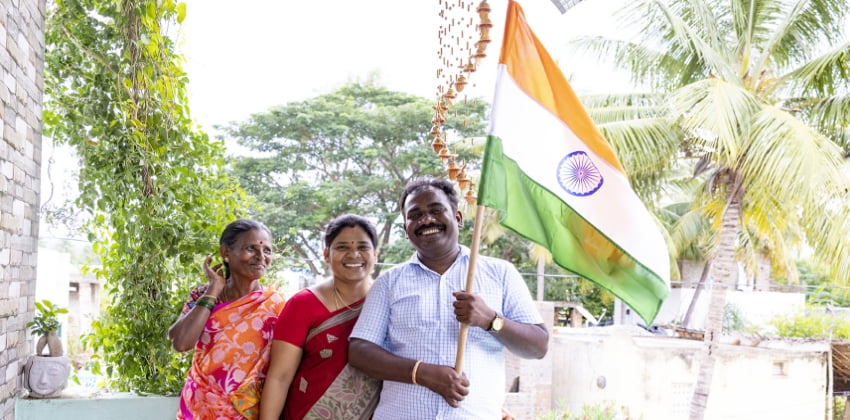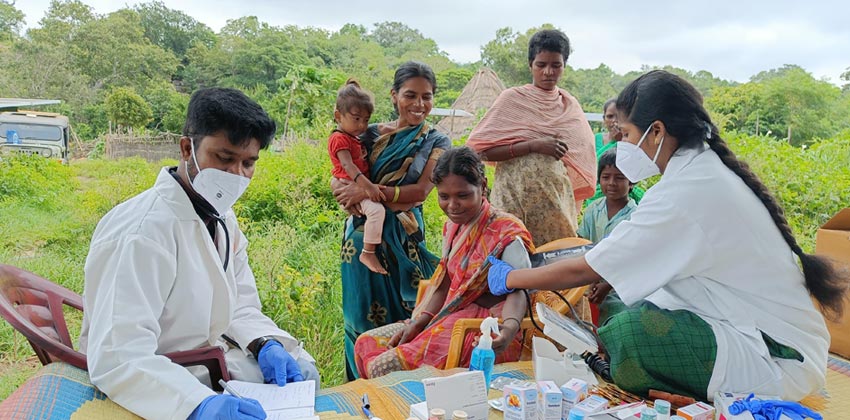At 78, Ibrahim is older than India today. He stands holding the national flag in front of his house in Ponnedupalle, a village in the Chittoor district in Andhra Pradesh. Ibrahim and his wife Fadullun have lived in this house when it was just a gudise (hut, in Telugu), when all that surrounded it were open fields and trees, and when people from the nearby hills had not yet come down to the plains and made it the settlement it is today. This house, like many others in the village, is hoisting the tricolour for the first time ever.
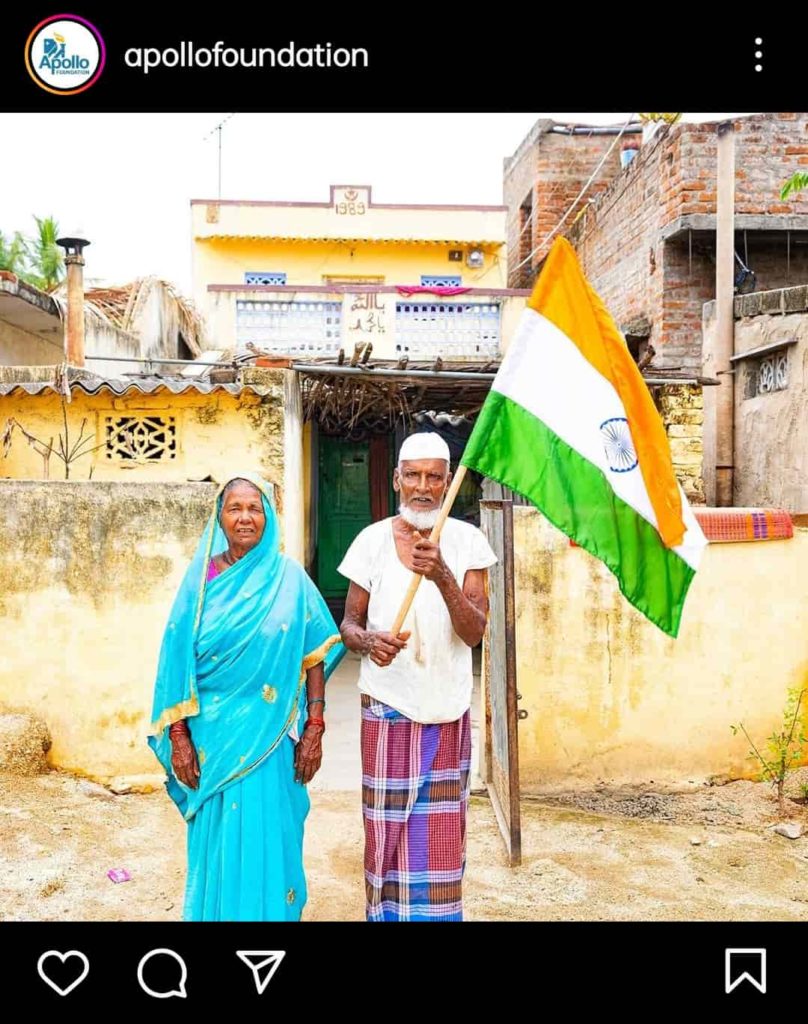
In keeping with the Government of India’s Har Ghar Tiranga programme that encourages people to bring the flag home, the Aragonda Vikas Trust (AVT) by Apollo Foundation Total Health has stitched flags to be distributed in the community. As the flags travel from family to family, its hosts contemplate what freedom stands for in their village.
Freedom as courage
At the AVT skill centre, where the flags are being stitched, U Anuradha, the head tailor says, “To me, freedom is when you don’t live in fear of anything.” Since its inception in 2014, the AVT skill centre has become a community of women holding down non-agricultural jobs. As farmers and farm labourers, their lives were wrought with the uncertainty of weather patterns and the risk of market forces that often played out to their disadvantage.
As much as the women here are looked up to, especially by young women, they have had to fight for their freedom to work. Suhasini A says, “Technically we are free to work wherever we want. But if you look closely, you will realize that this freedom comes with caveats: there are people behind you making snide remarks on where you are going, what you are wearing.” She wishes that the encouragement that she gets from her immediate family were not an anomaly but a standard in the society of which she is a part.
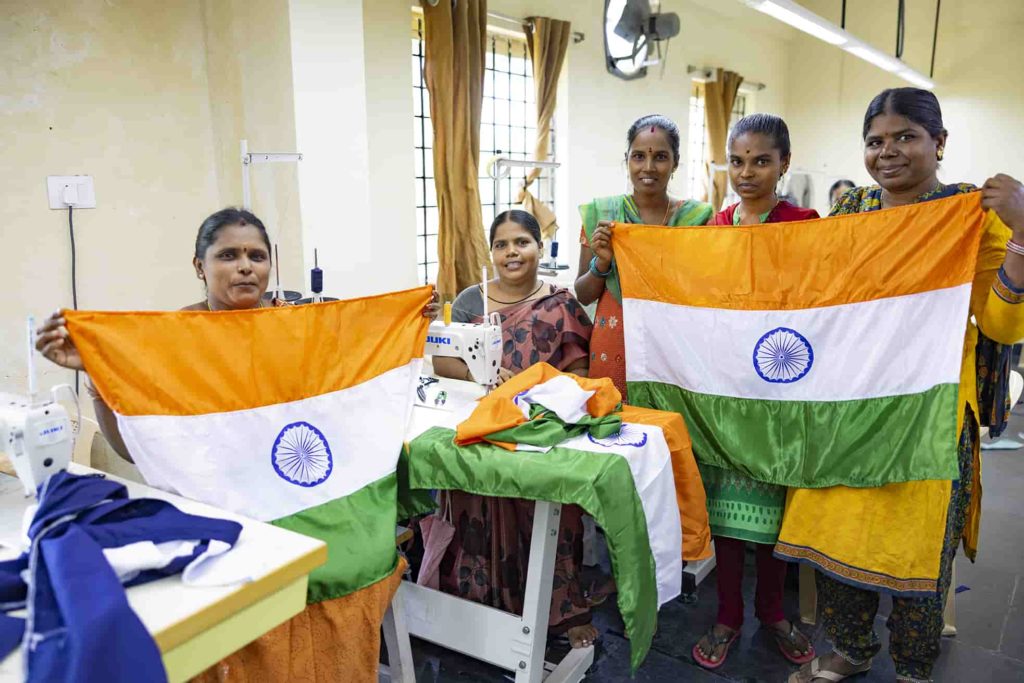
To access that freedom, there also needs to be the means to do so: Baby Rani has invested in a two-wheeler that she drives to her job. “Women should have freedom of movement,” she says, echoing a worldwide movement.
Freedom as equal opportunity
For P Drakshayini, freedom doesn’t end at being financially independent — which she has been all through her adult life. Drakshayini measures the growth her freedom offers and points out one glaring discrepancy: “For the labour that we put in at farms, I don’t see men and women being paid equally. When you are valued for your work equally, your respect increases and the freedom that the future generations will get will also increase.”
Like her, many in Aragonda associate freedom with independence from biases, and subsequently, a call for equal access: whether to healthcare or to education. N Sudhakar, 56, recalls how Aragonda has changed since the early decades of independence. “I remember there being an unsaid but clear class hierarchy: when people from some families entered community spaces, others would stand up as a mark of respect. It has taken a long time, but that mindset has thankfully left Aragonda; we are free from it,” he says.
Freedom as sustenance
As we chat while visiting people in Aragonda, our thoughts come around to India at 100. Uma Shankar, who will enter her 40s in 2047, imagines celebrating that day in a widely different Aragonda. “In the next 25 years, I want to see Aragonda develop into a city, hopefully with as many trees as it has now,” she says.
As much as the younger residents of Aragonda dream of development, of a hometown with better colleges, more jobs, fast bikes, and – most importantly – faster internet, they are also aware of the tradeoff. “I know for sure that by the time I have kids, Aragonda will be polluted – going by the rate at which the number of vehicles on the roads is increasing,” says 18-year-old E Tarak.
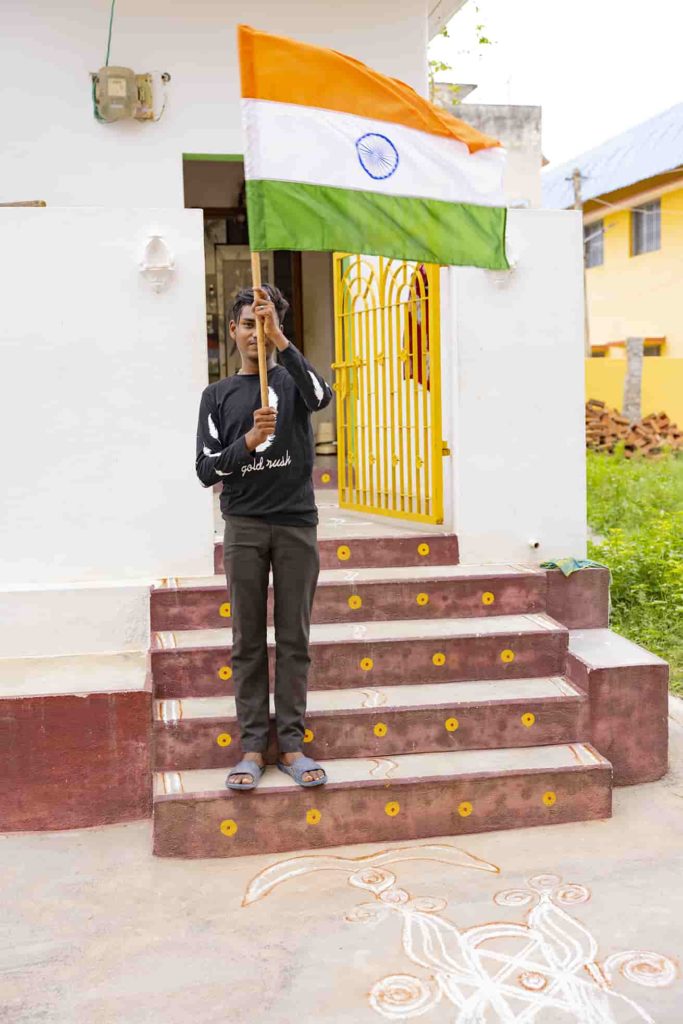
Neither he nor Uma wish to move to a metropolitan cities, subverting assumptions of the lure of rural migration. Uma envisions herself as a doctor, living in a high-rise apartment full of people her age right here in Aragonda. “I hope I have the freedom to pursue the education I want in a bigger city, and then come back to my roots here to take care of my family,” she says.
And then maybe someday, she can be as independent as her neighbour, U Bharati. Ask Bharati whether she feels she is free and she replies, “I am in my 60s, living alone and without depending on anybody else. What else do you call freedom!”
